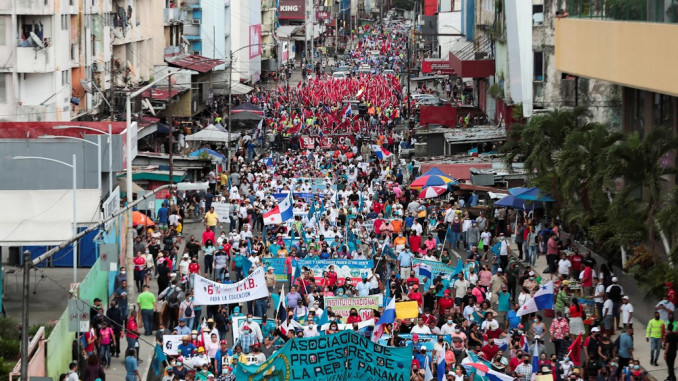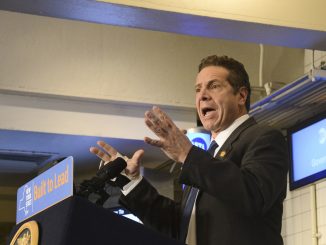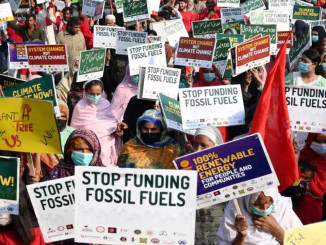
It isn’t only the US that’s seeing the highest inflation rates in decades: across the world workers are facing rising prices without any rise in real wages. In Panama, these impossible increases to the cost of living resulted in an explosion: throughout July, hundreds of thousands of protesters took to the streets and fought the police to defend their right to live.
The protests began on July 7, when teachers unions took to the streets to protest the high cost of gasoline in the country. Within days, dozens of other unions joined them, as well as indigenous groups and other organizations in the country. While the protests began over the high cost of gasoline, people began to demand far more than just an end to the high gasoline prices. Even before the pandemic, Panama had seen its poverty rate increase since 2017, with a population furious due to an extremely underfunded education system, and political corruption that has led to the creation of thousands of “botellas” – public service workers who collect a government check without doing any work.
For now the government has been able to calm the protests by granting some concessions. The price of fuel is frozen at $3.25 per gallon and the government has introduced regulations to try to lower the cost of food items by 30%. And the Catholic Church in Panama has agreed to mediate talks between the government and some of the official leaders of the organizations involved in the protests. But these talks are just a way for the government to divert popular anger. No negotiations will be able to solve the fundamental cause of the high cost of living and poor social services: a capitalist system defended by a government for the rich.
Panama is not the only country where the working class and poor are fed up with inflation. In June, people in Ecuador, led by indigenous people and farmers, formed road blocks throughout the country and brought business as usual to a standstill until the president agreed to lower the price of gasoline with a subsidy. In Sri Lanka, protests and strikes have been going on for months. In July, the people of Sri Lanka stormed the houses of the president and the prime minister, forcing them to flee.
High inflation and rising prices may benefit big businesses, but they don’t help us. These uprisings point a way forward for us here. If we want to end the high inflation and ridiculous cost of living we’re facing today, we need to organize and fight for it in the streets!




